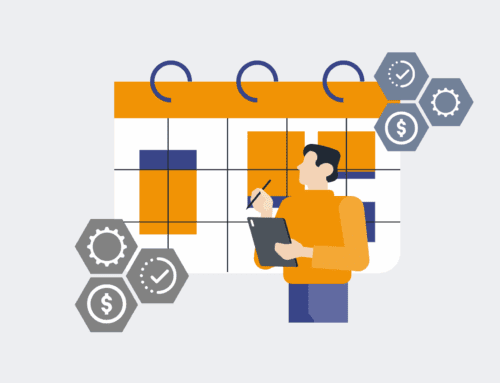From Manual to Automated: Transforming HR Operations with AI
For decades, Human Resources departments have been the backbone of every organization, managing everything from recruitment to retention. Yet, for just as long, HR has been characterized by mountains of paperwork, repetitive administrative tasks, and often, a reactive approach to complex employee needs. The notion of “manual processes” has been synonymous with HR, creating bottlenecks, fostering inefficiencies, and ultimately diverting valuable HR professionals from strategic initiatives that truly impact business growth. But what if we told you there’s a seismic shift underway, driven by artificial intelligence, that is not just optimizing but fundamentally transforming HR operations?
The transition from manual to automated isn’t merely an upgrade; it’s a complete reimagining of the HR function. AI isn’t here to replace human expertise, but rather to augment it, liberating HR teams from the mundane and enabling them to focus on the human element – the very core of their purpose. This transformation is about more than just efficiency; it’s about building a more agile, responsive, and data-driven HR department capable of truly supporting a modern workforce.
The Undeniable Imperative for Change in HR
Today’s business landscape is characterized by rapid change, demanding agility and precision. HR departments, often operating with legacy systems and processes, struggle to keep pace. The consequences are tangible: prolonged hiring cycles, inconsistent onboarding experiences, errors in payroll and compliance, and a general inability to leverage employee data for meaningful insights. These operational frictions don’t just cost money; they erode employee satisfaction, hinder talent acquisition, and ultimately impact an organization’s bottom line and competitive edge.
Consider the average recruiter spending countless hours sifting through resumes, scheduling interviews, and sending follow-up emails. Or the HR generalist mired in managing leave requests, updating employee files, and ensuring regulatory compliance. These tasks, while essential, are ripe for automation. When these foundational, repetitive tasks consume the majority of an HR professional’s day, there’s little room left for strategic workforce planning, talent development, or cultivating an engaging company culture.
AI: The Catalyst for Strategic HR
Artificial intelligence, in its various forms, offers a powerful antidote to these challenges. By taking on the heavy lifting of administrative and data-intensive tasks, AI frees up HR teams to become strategic partners to the business. Here’s how AI is reshaping key areas of HR:
Revolutionizing Recruitment and Talent Acquisition
The journey to find the right talent often begins with a deluge of applications. AI-powered tools can screen resumes significantly faster and more accurately than humans, identifying candidates whose skills and experience align best with job requirements. Beyond initial screening, AI can analyze candidate responses, predict cultural fit, and even automate the scheduling of interviews, dramatically shortening time-to-hire. This not only streamlines the process but also reduces unconscious bias, leading to more diverse and qualified candidate pools. Imagine saving hundreds of hours each month by simply automating the initial intake and parsing of resumes, then intelligently syncing that data directly into your CRM.
Streamlining Onboarding and Employee Lifecycle Management
A seamless onboarding experience is crucial for employee retention and productivity. AI can automate the generation of onboarding documents, guide new hires through compliance checklists, and even provide personalized training modules. As employees progress, AI can assist with performance management by analyzing feedback, identifying skill gaps, and recommending relevant development opportunities. From benefits enrollment to offboarding procedures, AI ensures consistency, accuracy, and a more positive experience for every employee interaction.
Enhancing Employee Engagement and Retention
Understanding employee sentiment and predicting attrition are complex challenges. AI can analyze communication patterns, survey responses, and performance data to provide insights into engagement levels and potential flight risks. Chatbots and virtual assistants can offer 24/7 support for common HR queries, providing instant answers and reducing the burden on HR staff. By proactively identifying issues and offering personalized solutions, AI empowers HR to foster a more supportive and engaging work environment, directly impacting retention rates.
Data-Driven Insights for Strategic Decision Making
Perhaps one of AI’s most profound impacts on HR is its ability to transform raw data into actionable insights. By integrating data from various HR systems, AI can uncover trends in hiring, performance, compensation, and retention. Predictive analytics can help forecast staffing needs, identify skill gaps before they become critical, and optimize workforce planning. This level of data-driven intelligence elevates HR from an administrative function to a strategic powerhouse, capable of advising leadership on critical talent strategies.
Embracing the Future: A Strategic Approach to HR Automation
The move from manual to automated HR operations is not a simple flip of a switch; it requires a strategic roadmap, careful planning, and a deep understanding of both technology and human needs. It’s about identifying the pain points, understanding the potential of AI to solve them, and implementing solutions that are integrated, scalable, and tailored to your organization’s unique culture and goals. The goal is not just to automate tasks, but to fundamentally optimize the entire HR ecosystem, creating an environment where HR professionals can thrive as strategic advisors and employees feel truly supported and valued.
Embracing AI in HR means unlocking new levels of efficiency, accuracy, and strategic influence. It’s about empowering your HR team to stop reacting to problems and start proactively shaping the future of your workforce. The time for transformation is now, making HR a true driver of business success.
If you would like to read more, we recommend this article: Mastering AI in HR: Your 7-Step Guide to Strategic Transformation








